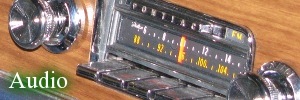















New Delhi Transport Operators Strike to Protest Fuel Shortage |
|---|

|
Anjana Pasricha
New Dehli
Voice of America
August 28, 2001
Audio: Download New Delhi Transport Operators Strike to Protest Fuel Shortage in RealPlayer format - 3:17 - 404KB
Transport operators in the Indian capital went on strike Tuesday to protest a severe shortage of compressed natural gas - a clean fuel that owners of buses, and taxis have been asked to use in a bid to reduce New Delhi's deadly air pollution. Transport operators are demanding that they should be allowed to use an alternate fuel.
Most schools shut down and commuters faced chaos, with much of New Delhi's fleet of buses, taxis and motorized rickshaws off the roads Tuesday. Hundreds of passengers were stranded at rail stations and the airport.
But few residents blamed harassed transport operators for the strike - the latest among several protests they have organized.
Delhi's public transport system ran into crisis after the supreme court ordered all commercial vehicles in the city to use compressed natural gas by September 30. With the deadline looming, owners of most of the city's 75,000 buses and taxis rushed to convert their engines to run on natural gas. But they now find government has not been able to keep pace with the massive surge in the demand for this fuel. The result is a veritable nightmare for the commercial vehicles.
Long, snaking queues of buses and taxis have become a permanent feature outside the 70 outlets that supply the natural gas. Exhausted drivers wait for hours in the scorching sun or spend the entire night waiting their turn for fuel.
Ramesh Kumar, who drives a school bus, says at times it takes him 12 hours to get the fuel. He says he does not eat on time, sleep on time or go home on time. He says the situation is making him angry.
The government admits the demand for compressed natural gas is more than three times the supply. It says it is uncertain if it can meet the capital's demands, unless new gas fields are discovered in the country.
Delhi's transport minister, Parvez Hashmi says the government is requesting the supreme court to permit vehicles to use alternate fuels. "We have gone [to the supreme court] with the request to allow us not to buy more vehicles of CNG [compressed natural gas] till we get adequate CNG for the existing fleet."
To make matters worse, experts are now questioning the wisdom of switching the city's entire public transport system to a single fuel. They say other fuels are equally clean. A widely publicized study by transportation expert Dinesh Mohan has suggested that low-sulphur diesel could also help reduce the city's deadly air pollution. "If you convert all buses into Euro-2 standards - and Euro-2 standards do not specify fuel - if we use a Euro-2 standard bus with diesel for example, the pollution would be similar to our current CNG buses."
Delhi's transport authorities say they are trying to find a way out of the mess. Meanwhile, both commuters and transport operators are resigned to their future - a long wait for a bus or a long wait for fuel.
